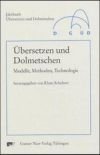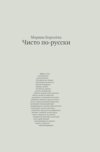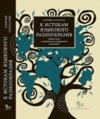
German historians
Source: Wikipedia. Pages: 180. Chapters: Andreas Hillgruber, Karl Marx, Ernst Nolte, Gerhard Ritter, Martin Broszat, Hans Mommsen, Karl Dietrich Bracher, Hans-Ulrich Wehler, Michael Stürmer, Klaus Hildebrand, Eberhard Jäckel, Bruno Bauer, Friedrich Schiller,... Viac o knihe
Produkt je dočasne nedostupný
36.27 €
bežná cena: 40.30 €
O knihe
Source: Wikipedia. Pages: 180. Chapters: Andreas Hillgruber, Karl Marx, Ernst Nolte, Gerhard Ritter, Martin Broszat, Hans Mommsen, Karl Dietrich Bracher, Hans-Ulrich Wehler, Michael Stürmer, Klaus Hildebrand, Eberhard Jäckel, Bruno Bauer, Friedrich Schiller, Friedrich Kellner, Oswald Spengler, Hans Rothfels, Joachim Fest, Klaus Bachmann, Karl August Wittfogel, Leopold von Ranke, Theodor Mommsen, August Högn, Jörg Friedrich (author), Rainer Zitelmann, Heinrich Graetz, Joseph Hergenröther, Golo Mann, Ronald Daus, Fritz Fischer, Karl von Rotteck, Imanuel Geiss, Albert, Margrave of Meissen (pretender), Heinrich von Treitschke, Michael Hesemann, Joachim Hoffmann, Reinhold Solger, August Ludwig von Schlözer, Percy Ernst Schramm, Richard Müller (socialist), Wolfgang Mommsen, Ricarda Huch, Ludwig von Pastor, Heinrich von Sybel, Johann Gustav Droysen, Theodor Fontane, Henning Eichberg, Hans Delbrück, Barthold Georg Niebuhr, Georg Gottfried Gervinus, Constantin Fasolt, Wolfgang Benz, Friedrich Christoph Dahlmann, Alexandra von Dyhrn, Richard G. Salomon, Ingo Heidbrink, Hans Coppi, Jr., Hannes Heer, Johannes Aventinus. Excerpt: Andreas Fritz Hillgruber (18 January 1925 - 8 May 1989) was a conservative German historian. Hillgruber was influential as a military and diplomatic historian. At his death in 1989, the American historian Francis L. Loewenheim said: "Andreas Hillgruber was probably the leading West German historian of his generation - a scholar of indefatigable energy and fierce independence, a scholar of weighty judgment even if one did not always agree with him". Other historians were more hostile, with the British historian Richard J. Evans taking the view that Hillgruber was a great historian whose once-sterling reputation as a historian was in ruins. Hillgruber was born in Angerburg, Germany (modern Wegorzewo, Poland) near the then East Prussian city of Königsberg (modern Kaliningrad, Russia). Hillgruber's father lost his job as a teacher under the Third Reich. Hillgruber served in the German Army from 1943 to 1945 and spent the years 1945-1948 as a POW in France. During World War II, Hillgruber fought on the Eastern Front, an experience that was later to play a role in his evaluation and writing about the period. In 1945, Hillgruber fled west to escape the Red Army, another experience that was to have much influence on him. After his release he studied at the University of Göttingen, where he received a PhD in 1952. As a student, Hillgruber was a leading protégée of the medievalist Percy Ernst Schramm, an academic who, as Eberhard Jäckel commented, regarded World War II as a normal war that regrettably the Nazis were not as skilled at waging as they should have been. Much of Hillgruber's early work reflected Schramm's influence. He spent the decade 1954-1964 working as school teacher. In 1960 he married Karin Zieran, with whom he had three children. Hillgruber worked as a professor at the University of Marburg (1965-1968), the University of Freiburg (1968-1972) and the University of Cologne (1972-1989). In the late 1960s he was a target of radical student protesters. He died i
- Vydavateľstvo: Books LLC
- Formát: Paperback
- Jazyk:
- ISBN: 9781151531292



 Anglický jazyk
Anglický jazyk 
 Nemecký jazyk
Nemecký jazyk 
 Ruský jazyk
Ruský jazyk 




